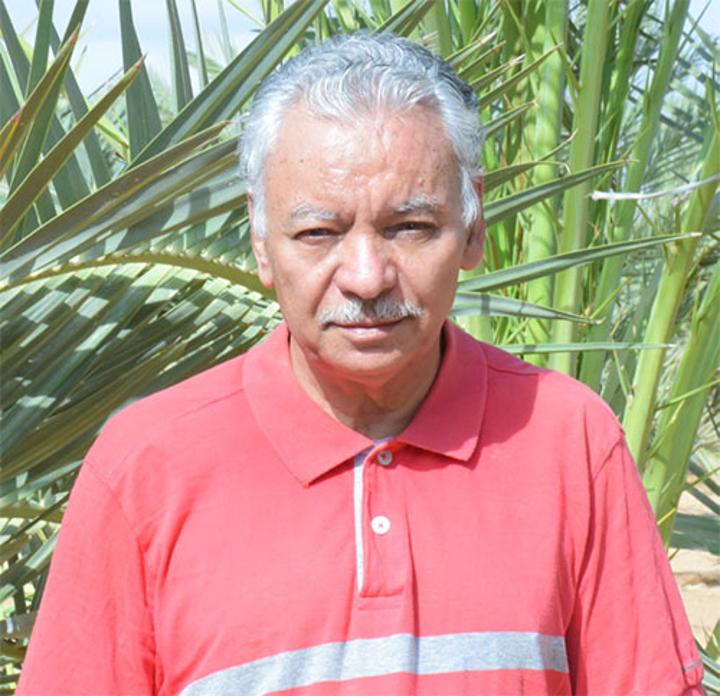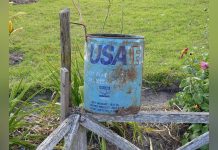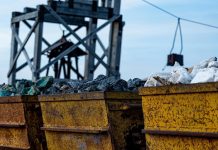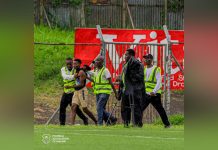Africa-Press – Eritrea. When it comes to the date palm cultivation, Dr. Abdallah, a widely respected international expert, has played an important and pioneering role in many countries, including Eritrea. We had the opportunity to sit down with Dr. Abdallah to talk about his experiences and discuss the development of palm date farming in Eritrea.
Question: Could you please tell us about your background in this field?
Answer: From a young age, I had close familiarity with date palm farming. My father is a date palm farmer in the southern part of Tunisia. Later, as a Masters and PhD student, studying to be an agronomist engineer, I focused on the science of date palm trees and their nature. It is just something I enjoy very much and I believe date palm farming is extremely rewarding.
I started my career as the first director of the Date Palm Research Center in Tunisia. I worked there for 10 years. Additionally, for 17 years, I have worked as an international consultant for the FAO and a senior date palm specialist, allowing me to visit many countries, such as Yemen, Namibia, Egypt, Saudi Arabia, and Eritrea. In 2018, I received the prestigious Khalifa Award for Date Palm and Agriculture Innovation, in recognition of my contributions and expertise related to date palm farming.
Q: Could you tell us about some of your publications?
A: Until this point, I have published around 40 articles on the topic of date palms. These publications are in leading, peer-reviewed journals. I have also published books, including, “The Impact of Good Agriculture Practices on the Production and the Quality of Dates”, and “The National Strategy for the Date Palm Sector in Egypt”. My biggest satisfaction, however, comes from the fact that I have trained more than 1000 date palm farmers in countries around the world.
Q: When did you visit Eritrea for the first time?
A: I first came to Eritrea in 2017, when I was appointed by the FAO to be a team leader of a technical cooperation project between the FAO and the Ministry of Agriculture. The project helped lead NARI staff in Halhale to initiate tissue culture propagating techniques for date palm. The project also enhanced date palm farming in various areas of the country, as well as helped in introducing best date palm varieties and their relevant technical activities prior to planting. Another important aspect of the project was its capacity-building component, particularly as it helped raise awareness and understanding among local experts and farmers.
Q: What is your current mission in Eritrea?
A: Through the Ministry of Agriculture, I am here for a NAP/IFAD project. The objective is to continue assisting the tissue culture staff in NARI for propagating date palm in vitro and training locals in the Northern and Southern Red Sea Regions on good date palm cultivation practices. It has been a pleasure to work in Eritrea.
Q: You are widely credited for helping to improve date palm development in Namibia. Can you tell us a bit more about this?
A: Before 1995, Namibia was a country where date palm farming was not well known. There were only a few date palms produced from seeds with low quality dates. In 1996, the government began to invest and also requested technical assistance from the FAO.
Later, with the assistance of the FAO, a date palm production programme was implemented over a five year period. The programme was launched by piloting three areas: Ersbegin, Naute, and Aussenkher. In these areas only international varieties, such as Medjool, Barhee, and Boufagous – were planted.
In addition, the programme was supporting private farmers to invest in date palms. We were distributing 10 date palms to each household, poor farmers, and women’s associations. In the first five years, the number of date palm farmers grew to 50, while 14,946 date palms were planted on an area of around 162 hectares.
During the second phase, which also ran for five years, the program increased to reach more than 200,000 date palm trees that were producing good quality dates. These were Barhee variety and produced an average of 350 kilograms. Soon, more private farmers began to get involved and Namibia became recognized as a country with quality dates.
Q: What lessons from your experience in Namibia and your experience from home could you share with us?
A: There are several, which I will try to summarize. First, when you start a new date palm sector in a country, it is important to work in parallel on three levels: sectoral/government level, the level of private farmers, and the household or communal farming plantation level. Second, close technical assistance that includes training programs is necessary during the establishment phase of the sub-sector for both the production and post-harvest phases. Third, the selection of good yielding and internationally known or loved varieties is important. Fourth, when a country is new to date palm cultivation, it is better and easier to start with a few good varieties.
Q: In your opinion, what are the prospects of date palm development in Eritrea?
A: During this first phase, running from 2017 to 2021, the results of growing and fruiting of offshoots planted in 2017 have been a real success. One of the factors contributing to this good growth is the rich soil around the Red Sea coast. These results confirm the huge potential of the Red Sea coast regions for date palm farming.
To date, Eritrea, like in the case of Namibia during its own first phase, has only around 20,000 date palm trees. However, if a date production support programme is properly implemented, the country could easily reach 100,000 to 200,000 date palm trees in just five to seven years.
I learned from a young age that the date palm tree is a sacred tree. It can be harvested for more than 50 years and if well managed can bear fruits for 70 years. Moreover, in each harvest season, which typically occurs once a year, one tree is able to produce between 100 and 300 kilograms of dates depending on the variety.
Although many challenges remain, none of them seem insurmountable. Eritrea’s success in this sub-sector could surprise the world. I believe that the establishment of a date production industry in Eritrea could support income generation, increase foreign exchange earnings, expand work and investment opportunities, and positively contribute to desertification control.
Q: In your opinion, which regions in Eritrea are most ideal for date palms?
A: The ideal regions for growing date palm trees are the Northern and Southern Red Sea regions. Some areas in Gash Barka could also have potential. Important factors, like rich alluvial soils, the availability of heat requirement for maturation of dates from April to September, and underground water, are found in these regions. During my current mission, we will try to give an order of priority to different areas in both the Northern and Southern Red Sea regions for planting date palm. However, I generally believe that Eritrea meets most of the requirements that date palm farming needs. The soil is good, the water is there, and the climate is ideal. Eritrea’s climate is characterized generally by three seasons, which is also a good factor suiting the cultivation of different varieties of date palm trees.
Q: How is your cooperation with the National Agricultural Research Institute (NARI), particularly in terms of tissue culture propagation for date palm production?
A: The staff members of the tissue culture laboratory are very dedicated and enthusiastic. That is why they have succeeded in producing date palm vitro-plants, while their capacity was proven by the first culture performed since 2017. They were successful and led to the production of complete vitro-plants of date palm from female inflorescences. Although some minor problems still persist, we will collaborate and address them. It should be noted that it is not easy to propagate date palm through tissue culture.
Q: What are the gaps you have identified in date palm production in the country? How do you assess the farms?
A: We planted palms and worked with many farmers in the Northern and Southern Red Sea regions. What pleased me most was the willingness of the people to work. The first steps of growing international varieties of date palm are generally successful. However, there are some farmers who prioritize vegetable crops for irrigation, especially in Foro and Afabet, and this was negatively affecting the growth of young date palms.
In brief, the only thing lacking in many plantation sites is technical knowledge. However, that is set to grow. The next step is promoting technical knowledge on how to produce good quality dates, execute the bunch management, harvest dates of different varieties, and handle, pack, store, and market these dates. We will also need some studies in the future to explore the capacity of the national market and value chain.
Q. Your main task here is transferring knowledge and skills to Eritrean experts and farmers. How is this going?
A: I would express my admiration for the willingness shown by the MoA, the extension staff, the NARI staff, and farmers more generally. Everyone is ready to learn and cooperate.
During this current mission, we have trained 283 participants in Asmara, Halhale, Northern and Southern Red Sea region. We are focusing on tissue culture, good agricultural practices, and controlling date palm pests and diseases. Considering the diversity of the trainees, we are using English, Arabic, and Tigrinya languages. Moreover, manuals and brochures were distributed to all trainees.
We are planning to conduct similar training workshops in the Southern Red Sea region soon. Knowledge transfer should be a continuous process.
Q: When do you think Eritrea can fully meet domestic needs and begin to aim for export?
A: Based on my experience, and assuming that the Date Production Support Programme is implemented successfully, Eritrea could meet domestic market demands very soon and begin to export within 6 to 7 years.
Q: Is there anything else you would like to share?
A: I would like to mention that I have been received warmly and the people have been extremely welcoming. I had no problem in communicating and delivering my discources. It is a real pleasure to be in Eritrea. I spent a lot of time in Asmara and Massawa, as well as Assab. Eritrea is a beautiful country and what pleased me most is the people’s willingness to learn and work. In the not too distant future dates will be a major export commodity from Eritrea. I wish all the best to the farmers, the Ministry, and the nation.
For More News And Analysis About Eritrea Follow Africa-Press







